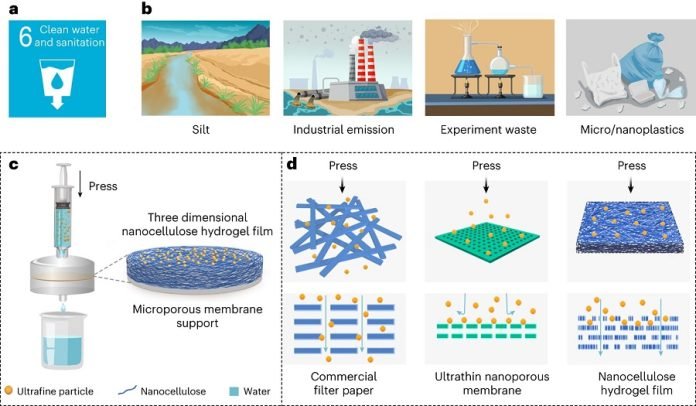
In a world where clean water is a luxury for many, researchers at The University of Texas at Austin have developed a groundbreaking water filtration system.
This new invention could be a game-changer for over 2 billion people – a quarter of the globe’s population – who struggle to find clean drinking water.
Many people in remote and underdeveloped areas have no choice but to use contaminated water sources.
This can lead to serious health issues, as dirty water is often filled with harmful particles. The need for an easy and effective way to purify water has never been more urgent.
Enter the team from The University of Texas at Austin. They’ve created a portable, affordable solution that’s incredibly easy to use.
Imagine a syringe that you can fill with dirty water from a stream or river.
When you push the water through the filter inside the syringe, it becomes clean and safe to drink. This filter, made from a special hydrogel, removes almost all tiny particles from the water.
Current portable water filters, like filter papers and microporous membranes, can only catch about 40% to 80% of particles bigger than 10 nanometers.
The Texas team’s system, however, captures close to 100% of these particles. It’s a significant step up in efficiency.
The secret lies in the filter’s design. It’s an intertwined web of nanocellulose fibers. These fibers trap the particles, letting only clean water pass through.
The materials used are low-cost, sustainable, and easy to find. Plus, the hydrogel films in the filter are biodegradable and can be used up to 30 times before needing replacement.
Using this system is a breeze. You just need to fill the syringe with water from your nearest source and inject it through the filter. Clean, drinkable water comes out the other side. The researchers have even tested it with different types of water, including muddy water, river water, and water contaminated with microplastics.
The team has successfully tested syringes as large as 1.5 liters. That’s almost half of the daily drinking water requirement for an individual. They’re now working to scale up this technology, aiming to help even larger communities.
This innovation aligns with the United Nations’ Sustainable Development Goals, focusing on improving global standards for drinking water and sanitation.
The team, led by Guihua Yu, a professor in the Cockrell School of Engineer’s Walker Department of Mechanical Engineering and Texas Materials Institute, and graduate student Chuxin Lei, is driven by the vision to make clean water accessible to everyone, everywhere.
The creation of this syringe filter system is more than just a technological advancement. It’s a beacon of hope. It promises a future where the basic human need for clean water is no longer a challenge but a given.
As this technology develops and reaches more people, it has the potential to dramatically improve health and quality of life for millions around the globe.



